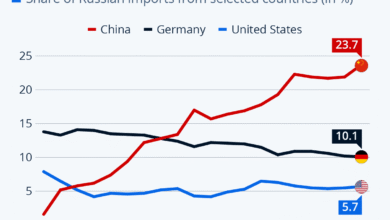Barclays Cryptocurrency Ban: What You Need to Know

In a notable shift within the UK banking landscape, Barclays cryptocurrency ban will take effect on June 27, restricting clients from conducting any cryptocurrency transactions through Barclaycard credit cards. This decision stems from the bank’s concerns over the inherent risks associated with digital currencies, which have seen significant volatility in recent years. As the UK grapples with evolving cryptocurrency regulations, the Financial Conduct Authority (FCA) is currently reviewing its policies related to digital assets. Meanwhile, customers utilizing Barclays credit cards for crypto purchases will no longer have that option, raising questions about the bank’s approach to fintech innovations and consumer protection. This move aligns with Barclays’ broader strategy to mitigate potential financial pitfalls for its users amid an increasingly complex crypto landscape.
As one of the leading banks in the United Kingdom, Barclays has decided to impose a ban on digital currencies, particularly affecting transactions made through their credit card services. The institution’s stance reflects broader concerns regarding the volatility and risks associated with cryptocurrency use, consistent with recent discussions around UK cryptocurrency regulations. With the FCA actively reassessing its crypto policies, Barclays’ prohibition on digital asset transactions underscores a cautionary approach amidst a rapidly evolving financial environment. This decision marks a significant divergence from the progressive regulatory frameworks being explored in regions like the U.S. and Hong Kong, where efforts are underway to foster digital asset growth. As such, Barclays’ actions illuminate the ongoing tensions between traditional banking conservatism and the burgeoning demand for cryptocurrency investments.
Understanding the Barclays Cryptocurrency Ban
Barclays, one of the UK’s leading banks, has implemented a ban on cryptocurrency transactions using its credit cards, particularly the Barclaycard. This prohibition, effective from June 27, underscores the bank’s apprehension regarding the volatility and risks associated with digital assets. By restricting transactions, Barclays aims to protect its clients from potential financial losses that could arise from investing in an unstable market. The bank’s stance reflects a cautionary approach amid a landscape increasingly influenced by UK cryptocurrency regulations.
The decision to enforce a cryptocurrency ban is not made lightly; it is grounded in a broader context of financial prudence. The Financial Conduct Authority (FCA) is actively reassessing its policies on digital assets, but Barclays seems to prioritize consumer protection over market expansion. Interestingly, while other financial institutions are more open to cryptocurrency integration, Barclays remains cautious, reflecting a deeply rooted conservatism in British banking traditions, particularly when it comes to high-risk investments.
Frequently Asked Questions
What is the Barclays cryptocurrency ban and why was it implemented?
The Barclays cryptocurrency ban prohibits the use of Barclaycard credit cards for cryptocurrency transactions, effective June 27. This decision was taken due to concerns over the volatility associated with cryptocurrencies, which could result in customers incurring debt they cannot manage. Additionally, cryptocurrencies lack protections provided by the Financial Ombudsman Service and the Financial Services Compensation Scheme.
How does the Barclays digital assets prohibition affect customers?
The Barclays digital assets prohibition restricts customers from using their Barclaycard credit cards for purchasing cryptocurrencies. This means customers need to find alternative payment methods for crypto transactions, potentially impacting their ability to invest in digital assets amidst a growing crypto market.
What do UK cryptocurrency regulations say about banks like Barclays restricting crypto transactions?
UK cryptocurrency regulations, as guided by the Financial Conduct Authority (FCA), are evolving. While the FCA is considering lifting a ban on crypto exchange-traded notes (ETNs), Barclays has chosen to uphold stringent policies by banning cryptocurrency transactions on its credit cards, reflecting the bank’s cautious approach amid ongoing regulatory changes.
How are FCA crypto policies influencing the Barclays cryptocurrency ban?
The FCA crypto policies are meant to align the UK’s crypto market with global standards; however, Barclays has opted for a conservative stance. While the FCA is moving towards loosening restrictions on crypto products, Barclays’ cryptocurrency ban highlights the bank’s focus on consumer protection from the risks associated with volatile digital assets.
What are the implications of the Barclays credit cards crypto ban for the future of cryptocurrency investments in the UK?
The Barclays credit cards crypto ban may limit access to digital assets for consumers who rely on credit cards for transactions. This could slow the growth of cryptocurrency investments in the UK, especially as the FCA is exploring options to enhance participation in the crypto market through new products. The tension between institutional caution and growing regulatory acceptance presents a complex landscape for UK crypto investors.
How does the Barclays cryptocurrency ban compare to other countries’ approaches to digital assets?
The Barclays cryptocurrency ban represents a conservative approach in the UK, contrasting sharply with more liberal policies seen in countries like the U.S. and Hong Kong. While the U.S. is moving towards deregulation and support for the crypto industry, and Hong Kong is promoting digital asset initiatives, Barclays’ decision underscores a cautious stance that may hinder the UK’s competitiveness in the global crypto market.
| Key Point | Details |
|---|---|
| Transaction Ban | Barclays will prohibit cryptocurrency transactions using Barclaycard credit cards starting June 27. |
| Reason for Ban | The decision is based on the risks associated with cryptocurrency purchases, particularly their volatility. |
| Regulatory Context | The ban comes as the UK’s FCA considers aligning crypto policies and could lift the ban on crypto ETNs for retail traders. |
| Financial Risk | Barclays highlighted that a fall in crypto prices could lead customers into unaffordable debt. |
| Lack of Protection | Crypto assets are not covered by the Financial Ombudsman Service or the Financial Services Compensation Scheme. |
| Contrasting Approaches | Barclays’ conservative stance contrasts with more progressive regulatory approaches in the U.S. and Hong Kong. |
Summary
The Barclays cryptocurrency ban signifies a significant step back for one of Britain’s most prominent banks regarding digital assets. As of June 27, customers will no longer be able to use Barclaycard credit cards for cryptocurrency transactions due to concerns over volatility and the associated financial risks. This decision not only highlights the bank’s cautious approach but also sets it apart from the evolving regulatory landscape in the UK, where the FCA is exploring more accommodating measures for cryptocurrencies. Barclays aims to protect its customers from potential debt and emphasizes the lack of safeguards for crypto assets, reflecting a broader skepticism within traditional banking toward the burgeoning digital currency market.




